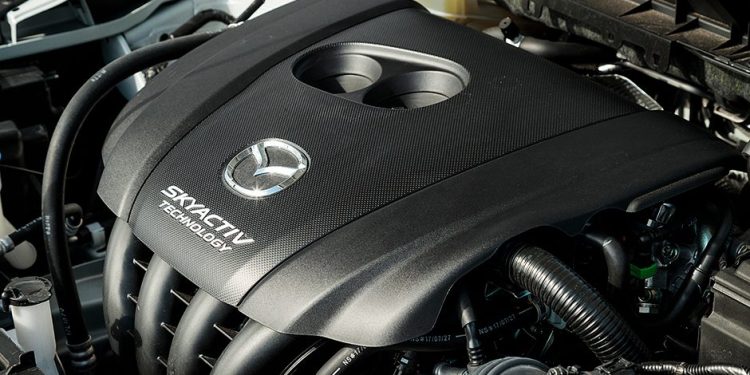Mazda partners up to research carbon-neutral fuels
Words: Harrison Wade
Mazda has today announced it will become a full member of the Research Association of Biomass Innovation for Next Generation Automobile Fuels, bringing the total number of participants to seven.
The Research Association was originally established by Eneos Corporation, a Japanese petroleum company, on 1 July 2022 to promote the research of biomass and efficient production of bioethanol fuel for cars.
Since then, Suzuki, Subaru, Daihatsu, Toyota and more have joined in the pursuit of realising a “carbon-neutral society”. Mazda now joins the team as its seventh member.
The Japanese carmaker also says that its multi-solution strategy to achieving carbon neutrality by 2050 involving internal combustion engines (ICE), hybrids, and fully electric models is what influenced it to join the Research Association, alongside the group’s research on improving production technology for bioethanol fuel and using CO2 generated during bioethanol fuel production.
“We are very honored to have received this invitation from the Research Association of Biomass Innovation for Next Generation Automobile Fuels,” said Hiroyuki Yamashita, the Senior Principal Engineer responsible for technological research at Mazda.
“Through the Research Association, we will work together with other member companies to promote research and development on production technology for bioethanol fuel and other technologies. We will make every effort to increase the potential of carbon-neutral fuels, a promising option for achieving a carbon-neutral society.”
Koichi Nakata, Chairman of the Board of the Research Association of Biomass Innovation for Next Generation Automobile Fuels, added that carbon-neutral fuels are a leading option for achieving carbon neutrality.
The move couldn’t come at a more perfect time with the European Union (EU) recently guaranteeing an exemption for new cars with ICEs running on e-fuel, sometimes called synthetic or carbon-neutral fuel, to be sold in Europe after 2035.
However, Mazda’s home country of Japan is reportedly planning on phasing out the sale of new petrol and diesel-powered cars sometime in the 2030s. On the other hand, it hasn’t said anything about e-fuels just yet.





